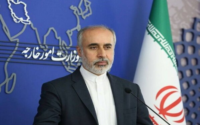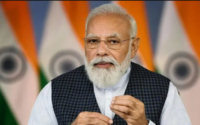Zelensky makes a spectacular Japan debut as G7 leaders target Russia and China 2023
On Saturday, Ukrainian President Volodymyr Zelensky joined leaders of key democracies in Japan to form a united front against Russia and China.
In Hiroshima, the Group of Seven (G7) is discussing how to deal with Beijing’s expanding military and economic power and Europe’s conflict.
Zelensky, disguised in military garb, landed on a French government jet in a Japanese city destroyed by a nuclear bomb.
“Japan. G7. Meetings with Ukraine’s allies. Security and improved collaboration for victory. After arrival, he tweeted, “Peace will become closer today.”
His presence emphasizes the necessity for Western cooperation against Russian aggression.
Zelensky’s calls for better weaponry and tougher sanctions on Moscow are increasingly urgent as Russia bombs Ukrainian cities and Kyiv prepares for a counteroffensive.
On Saturday, the G7 “condemned in the strongest possible terms” Russia’s war on Ukraine in a unified communiqué.
“We reaffirm our unwavering support for Ukraine for as long as it takes to bring a comprehensive, just and lasting peace,” the declaration stated.
A day earlier, G7 nations announced more sanctions against Moscow, and US President Joe Biden told his counterparts he would train Ukrainian pilots in the US and provide them with F16 fighter jets.
After Zelensky speaks, Biden will announce a $375 million military aid package to Ukraine, but leaders are also discussing climate change and artificial intelligence.

A China strategy?
The three-day event, which Zelensky will address on Sunday, is not only about Russia.
China is prominent.
The US and Europe disagree on how to handle their deteriorating relations with the world’s second largest economy.
In Saturday’s joint communiqué, leaders agreed on the need to oppose “economic coercion” and defend innovative technology that may compromise national security, as well as the need to cooperate with Beijing.
“A growing China that follows international rules is of global interest. “We are not decoupling or turning inwards,” the communiqué said.
Leaders called on Beijing not to “conduct interference activities” that could undermine the “integrity of our democratic institutions and our economic prosperity” in response to recent allegations that Beijing interfered in Canadian elections and operates a global network of overseas police stations.
A unified declaration on economic security directly referenced Russia but clearly targeted Beijing’s leadership.
Leaders called for improving supply chain resilience, fighting “harmful industrial subsidies,” and preserving critical national security technology, all of which have been worries about China’s economic policies.
Western politicians and officials directly linked the measures to Chinese threats in statements around the declaration.
The UK’s statement on G7 measures against economic coercion refers to China’s “economic power to coerce countries including Australia and Lithuania over political disputes” before its Saturday release.
In the Downing Street statement, Prime Minister Rishi Sunak said China is “engaged in a concerted and strategic economic contest” and nations “should be clear-eyed” about the mounting threat we face. He also mentioned Russia’s “weaponization” of Europe’s energy sources.
In a statement Saturday, European Commission President Ursual von der Leyen welcomed the G7 action and warned against “weaponization of interdependencies” but “urged de-risking not decoupling,” a term she has used to describe the EU’s economic relationship with China.
China’s Foreign Ministry posted a more than 5,000-word statement on its website on Thursday citing “America’s Coercive Diplomacy and Its Harm” from 1960s Cuba.
“The US often accuses other countries of using great power status, coercive policies, and economic coercion to pressure other countries into submission and engage in coercive diplomacy,” Foreign Ministry spokesperson Wang Wenbin said in a regular news conference in Beijing Friday.
The US invented coercive diplomacy. “The US and the US alone own the copyrights of coercive diplomacy,” he added, adding that China has “no taste for coercion and bullying.”
Debt Ceiling
The G7 pledged to lead the clean energy economic transformation in the joint communiqué this weekend.
“We commit to realizing the transformation of the economic and social system towards net-zero, circular, climate-resilient, pollution-free and nature-positive economies,” the communiqué stated.
Leaders also pledged to closely monitor the fast development of artificial intelligence (AI) by furthering debates on AI governance and interoperability in keeping with “shared democratic values.”
According to Jake Sullivan, Biden’s national security advisor, the president’s summit sessions include briefings on the debt ceiling crisis in Washington.
Countries want to know how discussions will progress. “The president has expressed confidence that we can drive to an outcome where we do avoid default, and part of the reason he’s returning home tomorrow, rather than continuing with the rest of the trip, is so that he can help lead the effort to bring it home,” Sullivan said.
As he visited Australian Prime Minister Anthony Albanese on the sidelines of the G7 conference in Japan, Biden told reporters he was not concerned “at all” about discussions with House Republicans to avert a default.
It’s gradual. “I’ve negotiated before,” Biden replied.
Biden received updates on Washington discussions from aides after leaving a leaders’ dinner early on Friday to return to his hotel.



